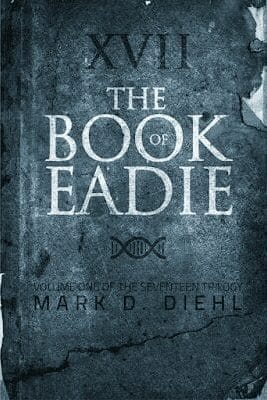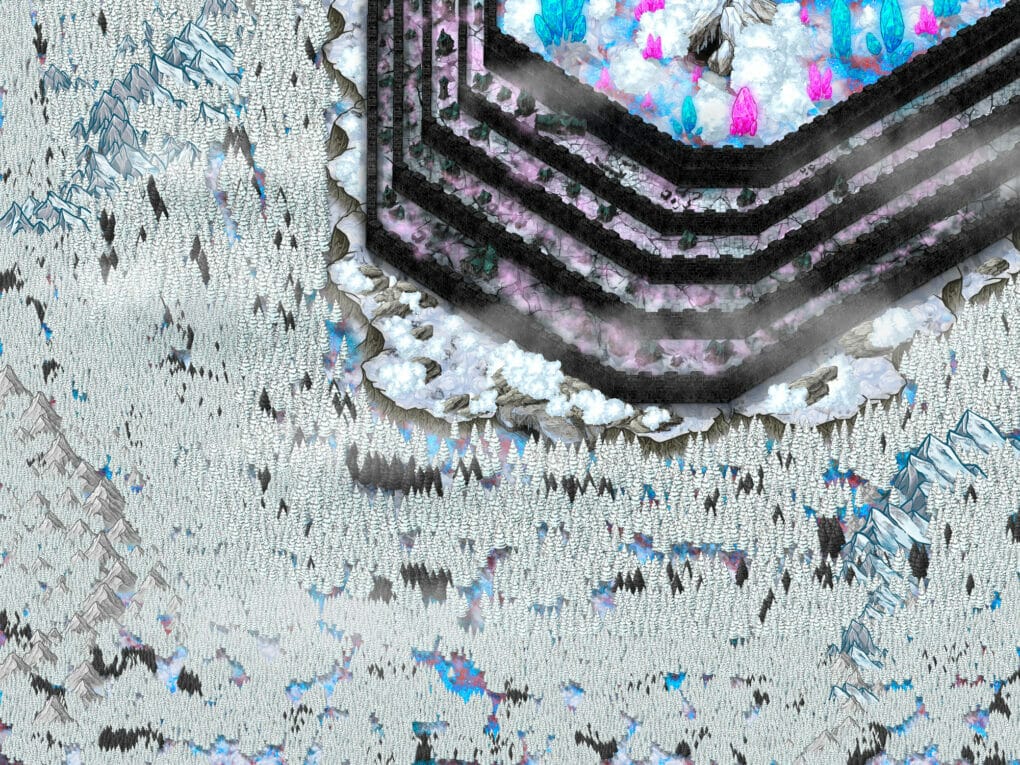
If you could tell your younger writing self anything, what would it be?
Corporate publishing chases the market. I realize it’s not exactly the feel-good statement of the year, but that one concept would have saved me a lot of grief. The myth in our industry is that publishers exist to produce “good” books, that they present readers with diamonds they’ve sifted from the dirt. The truth is that publishers are looking for a good product to sell. It seems like that would be the same thing, but browsing the shelves shows us that’s not true. The myth is misleading and dangerous.
Before I was a writer, I was an attorney. Popular culture had led me to believe that the most successful lawyers were the ones who came up with original, creative arguments nobody had thought of before. As a law student, and especially in practice with a major multinational law firm, I learned that the opposite was true. We were only able to argue that our clients should win because they were similar to earlier cases where someone in their situation had won. I couldn’t be the free-thinking maverick I’d intended to be as a lawyer, so eventually, I quit the profession and set out to write books. Surely, I thought, my own original ideas would be valued in the world of literature. Sadly, this was not the case.
I spent two years in graduate school for fiction writing at the University of Chicago, where I got to meet agents, successful published authors, editors, publishers, and other industry professionals. Their message was always the same: Chase the market. To get an agent, they said, I had to argue that my book was just like the other books that agent had represented before. They said I should analyze my market and show that I had used the same formats and ideas that other “successful” authors had used. Online, agency web pages told me what type of book I needed to write in order for them to represent me. It broke my heart.
This is crucial to understand: In our corporate-controlled world, independence and originality are always punished. Your story can be beautifully crafted in perfect prose, but corporations won’t look at it unless it’s like something else that came before. Understanding this is key to sanity as a writer.
What do you like to do when you’re not writing?
When I’m not immersed in a writing project or busy with family responsibilities, I spend quite a bit of time on social media. What’s important to me are connection with other people, intellectual ferment and the search for better understanding. The novel is by far the best means I’ve seen for effectively communicating complex ideas, but unfortunately social media have become a kind of substitute for many people, a way of connecting intellectually with other cognizant beings, but at a frighteningly shallow level.
Many people think I must like to fight, because they see me arguing on Facebook or G+ and assume I’m doing so because it’s something I enjoy. In truth, I only argue when I feel an issue is just too important to let it be misunderstood, like the fact that corporations are becoming a human superorganism and those on the outside will perish. Even in the heat of the debate, I wish I was doing something else. Still, for many years I found myself arguing constantly.
This is less true than it used to be. A few years ago, I got talked into running for Senate because someone convinced me that people just didn’t understand what’s happening. I debated on television, knocked on doors, sent out mailings, and did anything else I could to throw myself in front of the public. I tried to challenge the artificial “left vs. right” dichotomy we’ve been sold by corporate media and show that we’re being divided by money interests and spin doctors, but I learned it’s impossible. People not only believe the lies, they fight to protect their synthetic view of the world. Social media became an arena in which I was attacked 24/7, and yet I wasn’t armed with the easy answers and prepackaged “us vs. them” posturing the corporate parties had. At the end, I figured out that it was hopeless. The corporations already own us completely.
What drew you to speculative fiction?
I write about the future, so people think I’m speculating. Actually, I would characterize myself as a Post-Objectivist fiction writer, the first and only, so far as I know. Objectivism was Ayn Rand’s philosophy, based on the idea that true morality came from individual pursuit of personal goals. She asserted, therefore, that the only system that could be truly moral was a laissez-faire capitalist one with full respect for individual rights. Ayn Rand was brilliant, but she didn’t have the vantage point we do now.
In Rand’s day, humanity was trying to figure out how much a role government should play in markets. It looked like the world was being unzipped and falling into halves. On one side were state-planned economies, with their collective farms and military parades. On the other was the capitalist model, with our market-driven economies.
Growing up in Russia, Rand had seen Communism first hand. She realized that giving the state so much control was stifling to individuals, and she showed in her books how state oppression could extinguish a society’s innovative abilities. When Communist societies began collapsing, it seemed to prove that Ayn Rand had called it: We had the better system, and it was better because it encouraged and rewarded the individual.
Here’s the thing, though:
Multinational corporations now dwarf most of the world’s governments, but we still treat them as if they’re individuals. Recent Supreme Court decisions have upheld corporate “human rights” like privacy and free speech, meaning, among other things, that they are protected from surprise safety inspections and they can spend unlimited sums to influence elections. They own most of the world’s available resources and are run for one purpose only: the generation of short-term profit. They demand efficiency, planning, and discipline, they reward unity and conformity, and they have even less respect for human uniqueness than their government counterparts. Big business is not an alternative to big government so much as it is the new totalitarian structure eclipsing it.
The truth is that both models stifle the individual, either through the forced altruism of Communism or the cutthroat uniformity of corporatism. Step out of the party line, and the Communists shut you out, just like corporations do to whistleblowers. What Ayn Rand thought was the antidote to Communism was just a different kind of poison. If either the government or big business is able to rule on behalf of itself, the individual is shut out. The so-called left and right wings are just flying us toward control by the same elites, either way. What we see now is that either side can be equally dehumanizing.
The only way free individuals have a chance is if we all decide to wake up and become aware. In order for unique, independent people to continue to exist, we must develop into an informed public with actual power and the desire to keep it.
Here’s the same idea, boiled down:
In the jungle, the biggest gorilla takes as much as he wants. It’s natural. Our problem is that we have now created corporations and governments, which are essentially immortal “gorillas” who continue growing forever. Our situation is no longer natural.
Why did you write this story?
I lived in East Asia for a number of years. There’s always culture shock when you’re living in a new country and a different culture, but my experience was different from most. Americans tend to think that Asia is “behind” us in the West, because we had the Industrial Revolution and leapt to the forefront of finance and technology before they did. Living there, I realized that mechanized production and modern lending/equity practices don’t actually place one culture ahead of another in the long term.
To really understand where a culture is headed, we need to examine that culture’s circumstances and how they are likely to change over time. In East Asia, that’s pretty easy. China, Japan, and Korea are the world’s most densely populated societies with the most depleted resources, but they have now acquired those modern financial and industrial techniques developed in the West. In fact, Asian cultures have shown amazing proclivity for using those techniques, proving themselves to be the world’s most corporate economies. The West, on the other hand, has only now begun to confront the issues of overcrowding and resource depletion Asia faced more than a thousand years ago. Asia is now poised to pass us in terms of industry, finance, technology, and production, but those societies have always been ahead of us culturally.
Now, don’t get me wrong. When I say “ahead of us,” I don’t mean “better than us,” or that we should somehow aspire to be like them. What I mean is that they are more advanced in the direction we must go, not necessarily in the direction we want to go. If you want to see where we’re headed, you have to acknowledge that there will be more people crowded into limited space and utilizing fewer resources. Most Americans wouldn’t want to live subjected to the conditions under which people live in East Asia, but circumstances will eventually change Western societies to more closely resemble the East.
I witnessed a strange phenomenon when I was living in Japan. There, they grow watermelons inside plastic containers that are kind of like Tupperware, so that each one comes out the same shape and size as all the others. This allows them to be packaged, shipped, and shelved much more easily than natural watermelons. If you’re up early enough on a Japanese morning, you can see all the schoolkids lined up in their uniforms outside the school, learning to bow in unison. The rigid social system has the same effect upon the population that the boxes have on the stock of watermelons: Everyone comes out of the process ready to fit into the existing structure.
When I returned to the United States and ended up practicing law, I experienced the same conformist pressures. We all had to look the same, talk the same way, and discuss the same sports. Making partner in a big firm after many years of hard work didn’t bring the independence or autonomy one would imagine, because even partners were organized into a strict hierarchy with several levels. It was like living in Asia all over again. I realized that this had always been the pattern: Organizations with strict, militaristic hierarchies and enforced conformity had always wiped out those that had allowed more individual freedom, and this pattern was likely to continue. The independent individual human is being eliminated.
My Seventeen Trilogy imagines our future, when corporate structures have become our only means of survival. I intended it to be a warning about where we were headed, in the tradition of Bradbury, Orwell, and Rand. I’ll let the reader decide whether it’s already too late for us. Find me at my website and to learn more about my vision of the future: ArmyOfTheDoomed.com. If you agree with what I’m saying, find me on social media, as well. I’m pretty much everywhere, but I tend to use Facebook most. You can follow me on my author page, https://www.facebook.com/Mark-D-Diehl-195906077112873/?hc_ref=ARSmEa1Nww8vNna36-qo4VrqGbvJLIqvW2JoIGDC6ze5qkHUzVDK-Sfmom8q7jOjyfE
https://www.facebook.com/dark.mark.diehl
Tell us about the cover and how it came about.
My first version of the Book of Eadie (vol. 1) cover was beautiful and intricate, with a staring eye, ecological devastation, factory equipment, and a strand of DNA. I worked closely with the brilliant cover designer Rebecca K. Sterling, and I drove her crazy with all I wanted to do. When I re-edited the book to put it out as a second edition, I realized that a simpler cover would be better. Rebecca was busy so I worked with Christian Bentulan to design covers for the entire trilogy.
Each story has an arc of its own. In The Book of Eadie, a young waitress in a world completely controlled by corporations angers a CEO, and finds herself hunted by his company’s thugs, eventually starting her own revolution in self-defense. The trilogy has its own arc, though, which shows our species adapting to life among multinational corporations and eventually evolving into a corporate species. I wanted to show that while the books deal with science and evolution, there’s also a feeling that these events are pre-ordained and inevitable. For this reason, we went for a cover design that resembled the Bible. All three covers have the same style and lettering, but each has something different about it that relates to the story. Here are all three of the covers together:





Book Title: The Book of Eadie Vol. 1 of the SEVENTEEN Trilogy
Author: Mark D. Diehl
Genre: Science Fiction, Dystopia, Post-Objectivist, Evolutionary Anthropology – fiction
Corporations control all of Earth’s diminishing resources and all of its governments, dividing the world into two types of people: those who unquestioningly obey, and those who die.
Most of the seventeen billion humans on the planet are unconscious, perpetually serving their employers as part of massive brain trusts. The ecosystem has collapsed, naturally growing plants have been declared illegal, and everything from food to housing to medicines must be synthesized from secretions of genetically modified bacteria. Only corporate ambulatory workers can afford patented synthetic food, and non-corporates fight for survival in the city’s sprawling, grotesquely violent ghetto known only as the Zone.
Nineteen year-old waitress Eadie challenges the hierarchy when she assists a bedraggled alcoholic known as the Prophet, drawing massive social-control machinery into play against her. The Prophet predicts she’s the general who will lead a revolution, and a few desperate souls start listening. How can she and her followers possibly prevail when she’s being hunted by a giant corporation and the Federal Angels it directs?


Mark D. Diehl writes novels about power dynamics and the way people and organizations influence each other. He believes that obedience and conformity are becoming humanity’s most important survival skills, and that we are thus evolving into a corporate species.
Diehl has: been homeless in Japan, practiced law with a major multinational firm in Chicago, studied in Singapore, fled South Korea as a fugitive, and been stranded in Hong Kong.
After spending most of his youth running around with hoods and thugs, he eventually earned his doctorate in law at the University of Iowa and did graduate work in creative writing at the University of Chicago. He currently lives and writes in Cape Elizabeth, Maine.




